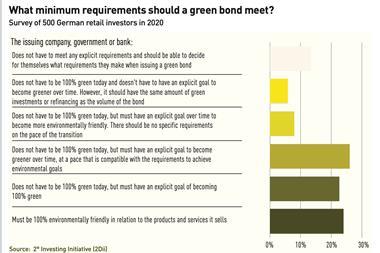Faced with a surprise plan by the Icelandic government last autumn to wind up the state-backed Housing Finance Fund (HFF, IL-sjodur), the country’s pension funds – who could lose around €1bn if it goes through – have joined forces to protect their members’ interests.
The furore began last October when the government submitted a report to the Icelandic parliament, Althingi, on the HFF – a government-owned mortgage lender – concluding it was de facto insolvent as it would foreseeably not be able to meet all its obligations when they fell due.
Continuing on from that, in March the Ministry of Finance and Economic Affairs put a document out for consultation setting out its intention to submit a bill to parliament for a legislative act on winding up the HFF and settling the government guarantee of its liabilities.
Arne Vagn Olsen, chief investment officer of Iceland’s second biggest pension fund, the Pension Fund of Commerce (Lífeyrissjóður verzlunarmanna), told IPE: “The announcement by the Minister of Finance and Economic Affairs on 20 of October was completely unexpected.
“The immediate effect on the listed bonds of IL-sjodur was a flight to par which resulted in up to 16% mark-to-market loss on the bonds overnight,” he said in the interview.
Before the announcement, the bonds – mainly held by Iceland’s pension funds – had been trading on a par with other state guaranteed bonds with a liquidity premium of around 15 basis points, the CIO said.
That loss in market value equates to around ISK150bn (€1bn) – which indicates the level of losses the pension funds stand to suffer should the minister’s plans go through, said Vagn Olsen. Icelandic pension funds had total assets of ISK6.74trn at the end of 2021.
At the time of the October announcement, the HFF bonds amounted to 45% of all domestically-listed bonds issued with the guarantee of the Icelandic state, Vagn Olsen said.
“Shortly after the announcement, a working group of four pension funds was formed on behalf of 20 Icelandic pension funds covering 96% of the Icelandic pension funds’ assets,” he said, adding that the group’s mandate was to engage legal and financial advisers, analyse the situation and suggest how to safeguard the assets of its members.
The pension funds have several objections to the plan set out by Bjarni Benediktsson, the Minister of Finance and Economic Affairs.
“To start with, the minister is proposing a bill that would allow the government to pay only the principal and accrued interest and indexation at the time of settlement as opposed to fulfilling the terms of the bonds, the longest of which has its final payment in 2044,” said Vagn Olsen.
“In other words, the Minister’s gain is what the pension funds are set to lose in future payments of interest,” he said.
Secondly, the CIO said, if the Minister succeeded in passing such a bill, the Icelandic constitution and the European Convention on Human Rights would come into play.
“This is based on the unequivocal legal view that claims pursuant to the HFF bonds and the state guarantee constitute ‘possessions’ that are protected by those instruments,” he said.
“Passing a bill that deprives the pension funds of these possessions therefore infringes upon their constitutional rights and gives rise to a claim against the Icelandic state for any losses suffered,” he said.
By law, the pension funds are under a duty to safeguard their members assets and will as such have to start legal proceedings to reclaim their losses, he said.
“Therefore, several years of trials both domestically and for the European Court of Human Rights seem inevitable should the Minister’s plans prevail,” Vagn Olsen said.
“Several years of trials both domestically and for the European Court of Human Rights seem inevitable should the Minister’s plans prevail”
Arne Vagn Olsen, CIO of Iceland’s Pension Fund of Commerce
Thirdly, the pension funds believe the implications of an Icelandic state guarantee being revoked by law is a “sad example to set for domestic and foreign bond holders” and might as such have a negative effect on the appetite for bonds issued by the Icelandic state and state-backed entities, he said.
“Finally, Icelandic law on bankruptcy does not apply to state-backed entities – such as IL-sjodur – which therefore cannot be put into liquidation under the law as it currently stands,” he said, adding that this was all clear from the outset and stipulated in the prospectus of the bonds when issued back in 2004.
“The Minister’s plan therefore constitutes a very clear example of the rules being changed retrospectively and shows the absurdity of the issue,” he said.
Asked to comment on the pension funds’ objections to the insolvency plan, a spokeswoman for the Ministry of Finance and Economic Affairs told IPE that the government state guarantee, whose terms were stipulated in the HFF’s prospectus, would come to effect regardless of the proposed legislative amendments.
“The purpose of the proposed legislation is to deliberate on and address the HF Fund’s clear insolvency in a prudent and orderly manner affording the holders of the fund’s bonds, who are predominantly long-term professional investors, a good prospect of maintaining or improving their position, and whereby the Treasury would honour the government guarantee of collection stipulated by the bonds’ terms,” she said.
By taking action now, she said, the growing problem would not be left to future resolution, but solved in a timely fashion before it escalated – which was the most effective way to ensure fiscal sustainability.
On the question of whether the proposed legislative change could negatively affect Iceland’s credit rating, the spokeswoman said: “It is logical to assume that the settlement and processing of HF fund’s assets and liabilities can strengthen the creditworthiness of the Treasury if successful, both in terms of direct financial aspects and in reducing uncertainty about the final impact on the Treasury.”
Vagn Olsen told IPE that the pension funds were positive about a negotiated solution – something Benediktsson had emphasised.
But so far, talks had stranded on the fact the Minister was proposing the pension funds handed over their HFF bonds in exchange for riskier assets that constituted around 84% of the value of the bonds, arguing that those riskier assets would give a higher rate of return.
“This argument fully ignores what riskier assets constitute in terms of higher return volatility etc,” Vagn Olsen said.
”While we understand the situation IL-sjodur is in, which originates in political decisions when it was founded and poor return on the funds’ assets, we cannot see the rationale or fairness in the minister’s plan to force the pension funds to take on the loss resulting from those decisions,” he said.
Read the digital edition of IPE’s latest magazine
























